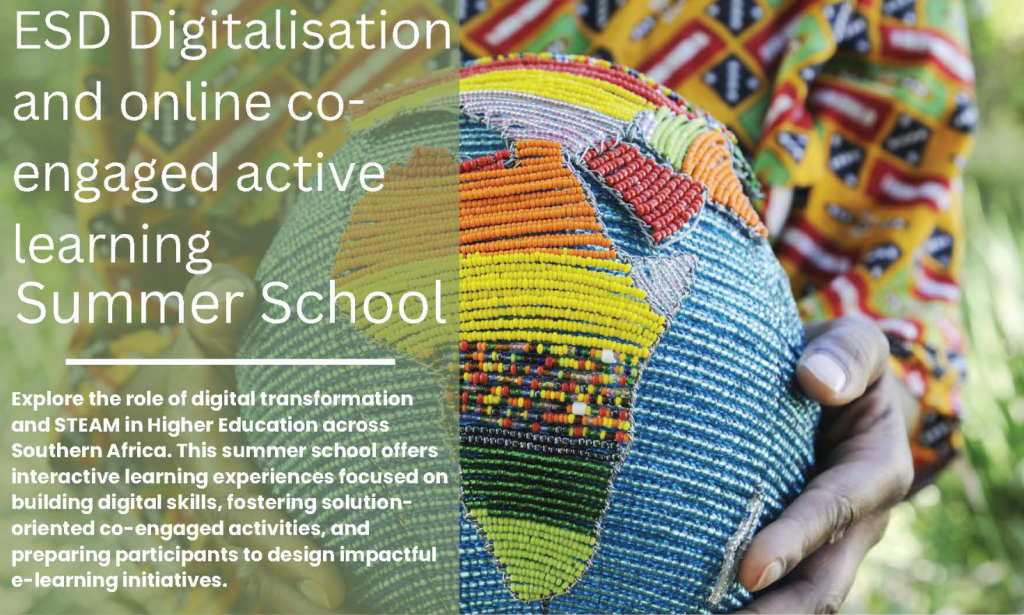Advancing Digital Higher Education in Africa: Highlights from the 2024 ESD Digitalization Summer School

Held online in November, the 2024 Education for Sustainable Development (ESD) Digitalization and Co-Engaged Active Learning Summer School brought together educators, researchers and digital education experts from South Africa, Eswatini, Mozambique, Tanzania, Zambia and Germany to address one of the most pressing challenges in higher education: meaningful digital transformation. Within the context of Education for Sustainable Development (ESD), the event offered a platform to 47 interested parties that registered to explore the intersection of digitalization, sustainability, and innovative teaching methods in higher education institutions. In addition to two Mozambicquan lecturers, lecturers from Eswatini, Mozambique, Tanzania and Zambia attended the Summer School, with an average daily attendance of 10 to 12 individuals for the four days.
During the four-day program, participants engaged in thematic sessions that addressed core issues such as digital literacy, data security, cybersecurity, STEAM (Science, technology, engineering, arts and mathematics) integration, and designing co-engaged digital learning activities. Led by speakers including Dr. Wilma van Staden, Prof. Rob O’Donoghue, and Prof. Ingrid Schudel, the program examined the institutional constraints and transformative potential of digital tools in higher education environments.
The event aimed to analyze digitalization processes specific to the Southern African context, evaluate current institutional capabilities, and identify gaps in infrastructure and training. A primary objective was to equip educators with the knowledge and strategies to integrate digital tools into their pedagogy and promote collaborative, solution-oriented learning models. Sessions were recorded and remain available for further dissemination via the program’s website.
Impact
The ESD Digitalisation and Co-Engaged Active Learning Summer Schoolhad a significant impact on educators across Southern Africa, despite challenges like civil unrest in Mozambique. It laid the groundwork for future digital training initiatives, including an online course scheduled for 2025. As higher education institutions in the region continue to navigate complex digital transformations, this event marked a critical step in building sustainable, inclusive, and digitally capable educational systems.
Participants gained hands-on experience with digital tools like Moodle and Zoom, equipping them to enhance their teaching with technology. The program highlighted the role of STEAM disciplines in supporting digital transformation, enabling participants to design co-engaged, sustainability-focused learning activities going forward. It also serves as a platform for future growth: laying the groundwork for continued professional development through the upcoming “E-Learning and Online Course Development” program in 2025.
We are grateful to our partners from Rhodes University, the environmental research learning center, the ProCyD project partners and Erasmus+ as well as the participants for the opportunity and rich exchanges.

